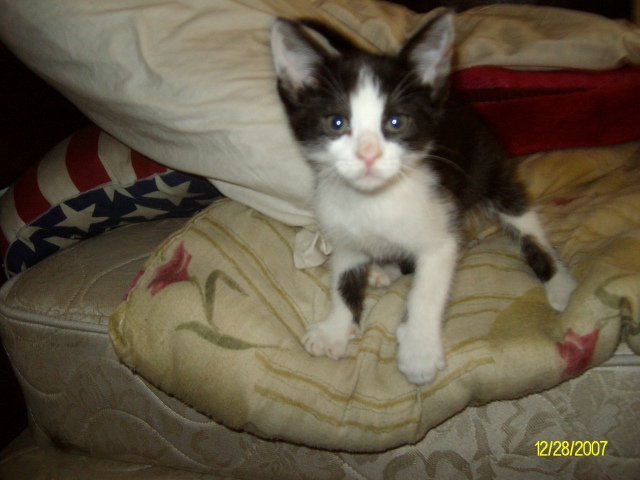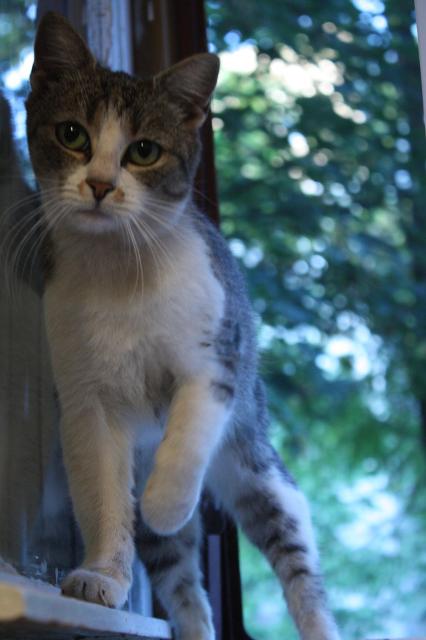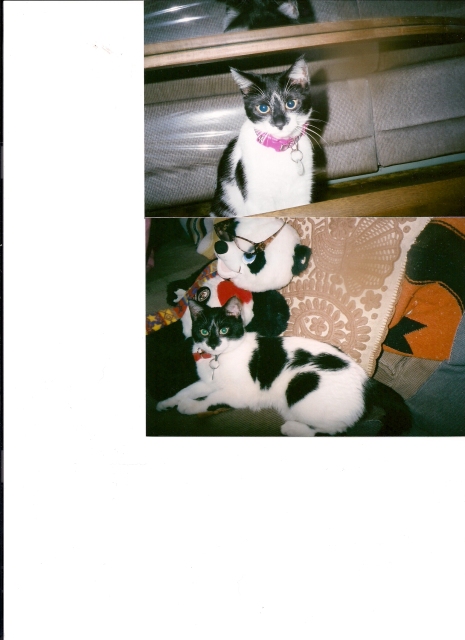QuestionHi, I wonder if you can help me. I have a 17 year old female domestic short haired cat. She is very lovely, found malnourished and dehydrated in my garden last year, but she's become a much loved part of our family.
She suffers from hyper thyroidism and renal failure and is treated using fortekor and felimazole daily.
Yesterday morning when I got up to feed her, I noticed that her pupils were extremely wide and that she had no vision in both eyes. I took her to the vets who diagnosed retina detachment in both eyes. He checked her blood pressure and has put her on Amlodipine and I have to take her back in 3 days for a follow up.
He seemed to think that part of the retina in her right eye may still be attached. Can you tell me what the chances of her regaining her sight may be? She is also deaf, so it's distressing to think that she is living in silent darkness, even though it seems as though I more distressed than she is and she is finding her way around without any problems.
If it's unlikely that she will regain her sight, can you recommend any reading I should do on caring for a deaf blind cat.
I guess I am also questioning how morally correct it is to keep alive an old cat with so many problems :-(
Thanks in advance.
Sarah
AnswerUsually there are underlying conditions that cause detached retinas. In her case it may just be old age. There are not really any life threatening eye problems for cats. But normally, this problem isn't something that will repair itself. I would keep her in the house becauseof the sight problem, if you haven't already done that.
Besides that, doing any sort of operation on a 17-year-old cats eyes would not be too wise, as it may cause more pain and stress than she may already be going through with the renal failure and hyperthyroidism.
Tell me, is she ok on the meds she is taking? If she is comfortable and doing better with the meds, then you may not need to put her down. Even if she becomes blind and deaf, she can be quite content if you care for her and pet her, and help her if she needs help being fed and moved.
Despite being blind and deaf, she can enjoy life since she can rely on her keen sense of smell and her sense of touch through whiskers on the face and legs. She may hear you approaching by vibrations of the air and of the floor. She is likely to become defensive and more easily startled. She can be alerted to your presence by blowing gently in her direction. At mealtimes, blow across the food bowl to waft the scent towards it. But never allow her outdoors unsupervised.
Confine her to familiar areas of the house where she can learn her way around and could sunbathe near a window.
When you are at home, she can have free run of the familiar area under a watchful eye; but while you are out, make sure the cat she in a safe, escape-proof room or pen with food, water and litter within easy reach (do not move the locations of these necessities, it will confuse her). Catnip-scented toys provide stimulation.
A harness and leash can allow her to go into the garden and enjoy the natural textures and scents. Cat-safe plants such as catmint, cat-thyme or Japanese cat-vines can provide enjoyment. This way she can 'feel' your reassuring presence because through the leash. Whenever she feels disoriented, indoors or outdoors on a leash, most deaf-blind cats learn to sit still, wailing, until help arrives and she's moved back to a familiar area.
Like blind cats, she can memorize her surroundings, but she's are doubly at risk because she cannot hear dangers approaching. Block off hazards such as stairs and fireplaces with a solid barrier - make sure she cannot stand on tiptoe and find the top of the barrier or she may decide to clamber over! As with a deaf cat, a noisy bell on its collar will help you locate it as it explores.
Make sure she knows exactly where to find her food and also litter tray otherwise accidents will ensue. If cared for well, she'll gain plenty of enjoyment through her senses of smell and touch.
Finally, if your cat is still suffering the stress of her bad health, consider getting a Feliway plug-in. It has no smell that can be detected by humans but releases calming agents which may help your cat relax.
If she is not doing well, then I would suggest not letting her suffer any longer and if the vet agrees, then sometimes we have to let our babies go.
Here are some online resources for caring for deaf/blind cats:
http://www.iams.com/iams/pet-health/deaf-cats.jsp
http://animals.howstuffworks.com/pets/home-remedies-for-cats-ga13.htm
http://www.messybeast.com/disabled.htm#deafblind
http://www.cat-world.com.au/caring-for-senior-cat
I don't know of any books but you may want to look on amazon.com and see if any are available.
Please let me know what you decide to do and your baby will be in my prayers.
Take care!

 what do i do
Question
this is shadow
i just got a kitten from the lo
what do i do
Question
this is shadow
i just got a kitten from the lo
 Cat meaowing after spayed
QuestionQUESTION: Hello, I am having a problem with my
Cat meaowing after spayed
QuestionQUESTION: Hello, I am having a problem with my
 Recently Adopted Cat
Question
CREAM PUFF
Hello !
Hoping all is well.
Recently Adopted Cat
Question
CREAM PUFF
Hello !
Hoping all is well.
 My 12 year old indoor/outdoor male escaped 2 weeks after a recent move
QuestionEefa and our lost blac
QUESTION: We trie
My 12 year old indoor/outdoor male escaped 2 weeks after a recent move
QuestionEefa and our lost blac
QUESTION: We trie
 can you identify the breed of my cat?
Question
charlie
Ive been guessing Norwegian Forest Cat
can you identify the breed of my cat?
Question
charlie
Ive been guessing Norwegian Forest Cat